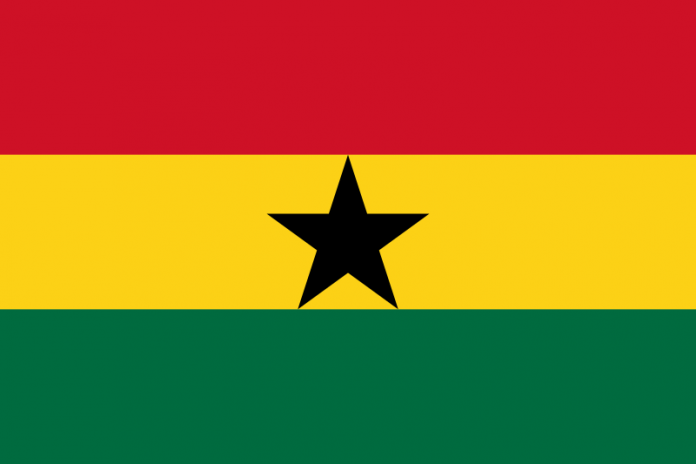Ghana bans LGBT+ conference after Christian groups protest
Ghana’s government has said it will not allow a major gathering of LGBT+ activists to go ahead after an outcry from conservative Christian groups in the country.
The conference, scheduled for July, would have been the first of its kind in West Africa. It aims to bring together LGBT+ leaders to share ideas and work together on changing discriminatory laws, according to the organizers.
Ghana is one of 32 countries in Africa that still criminalize same-sex relations, according to the latest report from the International Lesbian, Gay, Bisexual and Trans and Intersex Association (ILGA).
It has emerged as a hotspot for debate in the region, where in many countries even talking about LGBT+ rights remains taboo.
“[The] Ghana government won’t allow such [a] conference and that is it,” a spokesman for the Ministry of Gender, Children and Social Protection said.
When asked why, he said only that it was “not because of coronavirus.”
A spokesman for President Nana Akufo-Addo confirmed the ban in a text message.
A spokeswoman for the Pan-Africa ILGA, the South Africa-based association organizing the event, said on March 12 she could not comment and declined to say whether it was cancelled.
Anti-gay groups in Ghana had campaigned against the upcoming conference and last week called on the government not to issue visas to its organizers.
Ghana has not prosecuted anyone for same-sex relations in recent years, but LGBT+ people still face frequent abuse and discrimination, including blackmail and violent attacks, according to human rights researchers.
The government’s decision sparked anger among LGBT+ activists in Ghana, which last year hosted a major international conference organized by the World Congress of Families, a U.S.-based Christian organization that promotes an anti-LGBT+ agenda.
Russian magazine makes history as first to feature a transgender cover star
Tatler magazine has braved the strong anti-LGBT+ sentiment in Russia by featuring a trans woman on its cover, becoming the first Russian glossy to do so.
Natasha Maximova appears in an elegant khaki dress on the cover of the magazine’s April issue, beneath the headline: “My name is Natasha. This is how to change your gender, country, and life.”
It will certainly be a controversial issue in a country which has one of the worst LGBT+ rights records in the world. The hostility towards LGBT+ people was heightened in 2013 when Putin introduced the “gay propaganda law” which bans the “promotion of non-traditional sexual relations to minors.”
However, this law does not extend to gender identity, which meant Tatler was free to feature Maximova on the cover.
Maximova came out on social media in December by posting a photo of herself as a child. She described her childhood in Kazakhstan, being born to a “simple but loving family” who believed that she was a little boy.
Maximova identified as a girl from an early age, wearing her sister’s dresses, playing with dolls, and asking her mother for starched bows. When people addressed her as a boy she would tell them: “I’m sorry, but you’ve got it wrong, my name is Natasha.”
Posting the Tatler cover on Instagram, Maximova wrote: “Being the first transgender woman on a Tatler cover, I want to dedicate [my shoot] to those who fight, to those who love and to those who made their choices or are on their way to make a decision.
“You are all different, you are all beautiful, and you are all you! Thank you for believing!”
Canada moves to ban conversion therapy
Lawmakers in Canada introduced a bill on March 9 that would ban conversion therapy in the country.
Attorney General David Lametti and Minister of Diversity and Inclusion and Youth Bardish Chagger introduced the measure that would amend Canada’s Criminal Code. The proposed amendments would punish those who cause “a minor to undergo conversion therapy,” remove “a minor from Canada to undergo conversion therapy abroad,” cause “a person to undergo conversion therapy against their will,” profit “from providing conversion therapy” and advertise “an offer to provide conversion therapy.”
“The legislation would also authorize courts to order the seizure of conversion therapy advertisements or to order their removal from computer systems or the Internet,” notes a Canadian government press release that announced the bill’s introduction.
Prime Minister Justin Trudeau last December publically called for a conversion therapy ban in Canada. Trudeau on Tuesday applauded Lametti and Bardish for introducing the measure.
“Conversion therapy is harmful, degrading and has no place in Canada,” tweeted Trudeau.
If members of parliament support the measure, Canada would join Brazil, Ecuador, Malta and Taiwan in banning the widely discredited practice.
